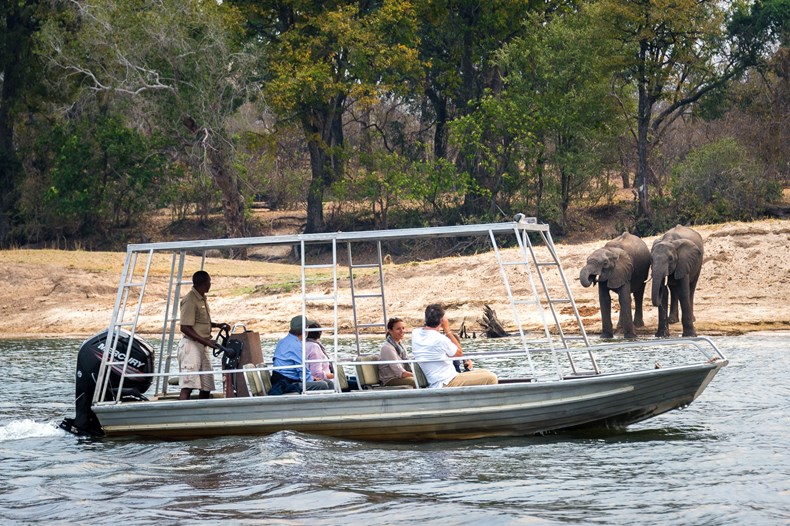Wilderness Safaris Zambia – A Sustainable Ecotourism Presence With An Extended Positive Impact

Wilderness Safaris has been pioneering ecotourism in Zambia since 2000, where its current presence in both the Busanga Plains in Kafue National Park (KNP) and at Toka Leya in Mosi-oa-Tunya National Park plays a crucial role in the preservation and monitoring of the country’s wildlife, wilderness and its people. This has been done through direct contribution to and initiation of important conservation initiatives – including helping to increase numbers of Vulnerable and Endangered species, like white rhino in Mosi-oa-Tunya Park, and conserving one of Africa’s largest protected areas, KNP, that is still largely untouched by development and human activity.
Below are a few facts illustrating Wilderness Safaris Zambia’s positive impact on the country, its wildlife and wilderness areas:
- Busanga Bush Camp and Shumba are located in the Busanga Plains and contribute to the conservation of 2.4 million hectares of wilderness in Kafue National Park, as well as the protection of 19 Vulnerable and Endangered species. The third camp, Toka Leya, has been helping preserve the surrounding Mosi-oa-Tunya National Park since it was launched in 2008.
- The Zambia region has a staff of 201 people, with the majority being local citizens, and an estimated 6.4 dependents on each employee, resulting in over 1 300 people who are positively impacted by the business.
- Casual labourers are also sourced locally during construction periods. Rural income is such that those employed during the camps’ construction period earned more than eight times the annual average income for rural Zambians.
- Wilderness Safaris’ presence contributes to the conservation of the country’s most diverse Park, KNP, which has some 55 large mammals, including 20 ungulate and six cat species, as well as nearly 500 bird species.
- Through funding from WWT, Wilderness Safaris also provides support to various conservation initiatives, further strengthening its unwavering commitment to responsible ecotourism. In the past three years, the company has invested USD141 168 towards community and conservation for combined Toka Leya and Busanga Plains initiatives:
Click here for more details.
